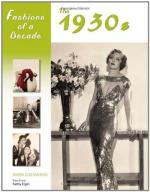|
This section contains 156 words (approx. 1 page at 300 words per page) |

|
Beard's An Economic Interpretation of the Constitution was in many ways the historical equivalent of the muckraking journalism of the progressive era. It submitted to withering inspection the economic motives and self-interest of the Founding Fathers in framing the Constitution. In contrast to the heroic and laudatory understanding of the framers that dominated most American histories, Beard argued that their foremost intention was to protect their property and that the Constitution was in many ways an antidemocratic document. Such an interpretation was shocking to many, but it fit perfectly Beard's maverick dissent from intellectual orthodoxy. Further proof of his independent spirit came in 1917. Although Beard supported American entry into World War I, he opposed efforts to silence antiwar protesters. When three Columbia instructors, J. McKeen Cattell, Henry Wadsworth Longfellow Dana, and Leon Fraser were fired for opposing conscription, Beard resigned from the university, bringing an end to...
|
This section contains 156 words (approx. 1 page at 300 words per page) |

|




